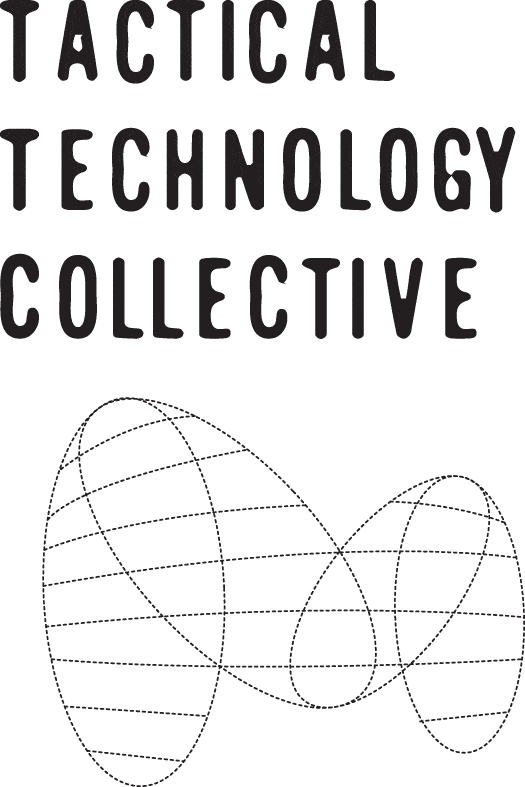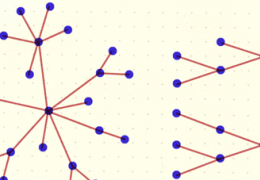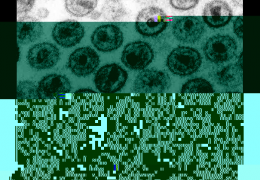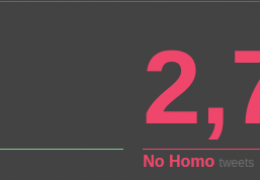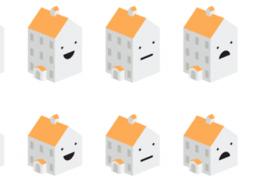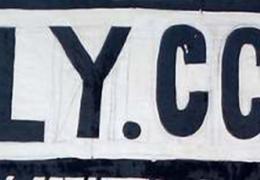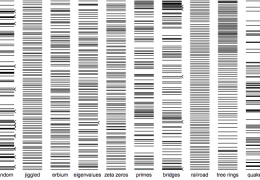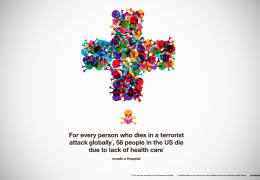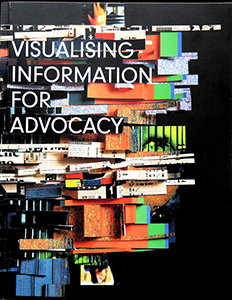By Dirk Slater, Maya Ganesh and Beatrice Martini, April 17, 2015
This post is the second in a two-part series about sex work, trafficking and data. The first one is about how data "creates" the problem of trafficking through the generation of data. This second post is a set of reflections and practical learnings from a community-owned, two year, 'small data' project Tactical Tech did with Women's Network for Unity, a Cambodian sex worker rights collective. This post goes into the history and outcomes of this project in some depth. We decided to write about our experience of working with WNU for two reasons. First, we had never really shared our experience of this capacity building work in this context; and second, from the perspective of this blog, we wanted to close off this series on the dilemmas of data in advocacy by focusing on a story about people and communities using data. This post was collaboratively written up by the three authors and draws on Tactical Tech's reports and notes compiled through the course of the project . This post is a version of what's on Dirk's and Beatrice's blogs.
About the project
Using Technology to Document Violations: Enabling Sex-Worker Communities to Document Violence Against Them in India and Cambodia was a project carried out by Tactical Tech in partnership with two sex worker collectives, Durbar Mahila Samanwaya Committee (DMSC) in Calcutta, India, Women's Network for Unity (WNU) in Phnom Penh, Cambodia, and a Delhi-based research organisation, r e a c h Social Solutions (r e a c h), that studied the project from an evaluation perspective. To provide a more detailed context to the project – and its consequent learnings – this post focuses on the work done with one of the two partner organisations, the Women's Network for Unity (WNU). If interested in the work realised with Durbar Mahila Samanwaya Committee (DMSC), please read more about it in this write-up.
What WNU wanted to do: challenging myths perpetuated by the anti- trafficking law
Women's Network for Unity (WNU) is a grassroots collective representing roughly 6,000 sex workers (at the time of the project) in Phnom Penh and regional provinces outside the capital. The collective seeks to promote the rights of sex workers to earn a living in a safe environment, free from exploitation and social stigma. At the time of our project, WNU's objective was to collect evidence to highlight the negative impact of the anti-trafficking law on sex-workers and to show how the police were misusing the powers this law gives them for detention and arrest.
The anti-trafficking law currently applied in Cambodia doesn’t distinguish correctly victims of trafficking by sex workers, and it criminalizes all individuals it targets indiscriminately, also exposing them to abuse of power by the police force. Advocates for sex workers in the country understand that in order to change the law, they need to change public perception, showing how the law fails to achieve its ends, as well as the harm that it does in society. This requires the careful selection of indicators that will be easy to gather, measurable, inexpensive, easy to understand, and easy to visualize.
Caught between the Tiger and the Crocodile, a film by the Asia Pacific Network of Sex Workers about the effect of the anti-trafficking law in Cambodia
First of all, WNU wanted to demonstrate that sex work is work. Contrary to what the anti trafficking law assumed, not all sex workers have been trafficked against their will. In numerous cases, sex workers are individuals who, facing the risk of extreme poverty start working in the sex industry. The sex trafficking myth deprives sex workers of agency and identity, and ultimately prevents them from being entitled to the rights granted to other categories of citizens and workers.
In addition to the issue around misrepresentation of sex work, WNU wanted to document the illicit abuse of power committed by the police force against the workers, and its consequences on the health and finances of both the arrested individuals and, consequently, their families. Furthermore, raids and arrests under the anti-trafficking law had forced sex workers to go underground, and it became extremely difficult to reach out to them with condoms, HIV prevention, care and treatment. Specifically, WNU had decided to document police violence against sex workers during arrests and detention to show how the anti-trafficking law was being misused.
Over the previous year, WNU had already collected more than 800 detailed accounts of what happened during arrests and detention. However, upon close analysis, they realised that the information they were collecting was in fact more like case studies rather than investigations to build a serious evidence base to show how the law was being abused. For example, the anti-trafficking law states that someone detained under it cannot be held for more than a certain number of hours, after which they need to be moved through the social affairs ministry's procedures and be released to an organisation that vouches for the sex worker's 'rehabilitation'. However, WNU had not documented when a sex worker was detained and how much later she was released, so it wasn’t possible to show how long she had been in detention. In some cases arrested sex workers were being held without food and water, those who were HIV positive were denied access to their medication.
What Tactical Tech wanted to do
Tactical Tech's original proposal was to improve the digital documentation techniques being employed by sex worker collectives in reporting on violence against them. An initial scoping phase, in 2009, explored options for enhancing sex worker advocacy through the use of technology. At this time, Tactical Tech explored a variety of options, including mapping and use of mobile devices, but the assessments revealed that neither organisation's advocacy efforts would have been enhanced by the use of digital documentation technologies. Instead, efforts needed to be made to increase skills and techniques in handling information itself.
As we learned more about the organisations’ challenges related to their advocacy, their use of technology and the state of their existing documentation activities, and as a result of a process that was responsive and adaptive to the needs of the partner organisations, it became evident that the goals of the project needed to be re-evaluated. It was in this phase that our donor demonstrated to be greatly flexible and responsive to the project achieving a meaningful advocacy impact. When Tactical Tech suggested that the project shouldn’t be technology led, they trusted this decision and kept supporting the project. So, from an initial objective of enhancing the groups' use of technology to document violence, the goal of the project shifted to strengthening their use of information in advocacy, and helping them refine their advocacy strategies on violence against sex-workers.
What we worked on together: the WNU 'Atlas of Sex Work' project
“You are welcome anytime, you're not like others who come with their own bag of potatoes”
It’s with these words that the chair of WNU thanked us for approaching our work with them with no assumptions or preconceived agenda, but eager to listen and develop our collaboration together. Here is what our work together looked like.
- Tactical Tech reviewed existing research on sex workers and developed the idea of the Atlas of Sex Work
Reviews of existing research on sex workers showed a focus on HIV prevention, care and support, and a struggle between competing lobbies who are either for or against the implementation of anti trafficking legislation as a means to end sex work. Furthermore, data and evidence about sex worker communities were often collected by outsiders and the ownership of the data is rarely with sex workers themselves. In order to challenge this dynamic, Tactical Tech developed the idea of the 'Atlas of Sex Work', a series of visualisations of evidence collected by WNU to engage their different target audiences. Inspired by the Subjective Atlas of Palestine, the Atlas of Sex Work was an opportunity to showcase ideas for creative aggregations of information about the lives of sex workers and the conditions of mistreatment that they face. The concept proved useful for further developing ideas and inspiring advocacy messages for target audiences.
- We started by assessing WNU's capacity to conduct documentation of violence against sex workers.
We asked WNU to walk us through their current documentation process and show us their outputs. We also examined their current use of technology and realised that their paper based systems worked best and that the only improvement to be made was to have them put the information in spreadsheets.
- WNU explained their advocacy strategies to us
Talking about it together, we realised that the most effective way to frame their work was to ask whether and how the documentation and reporting of violations against sex workers could improve their ability to conduct advocacy and decrease the amount of violence happening in the sex worker community. Removing the emphasis on digital technologies and focusing on the use of data in strengthening their advocacy techniques was an important step. This flexibility was critical in moving forward and it was important for us to clarify this internally, with partners and the funder. They decided on two focus areas for this project: 'Stop Raid and Rescue' and 'Sex Work is Work'.
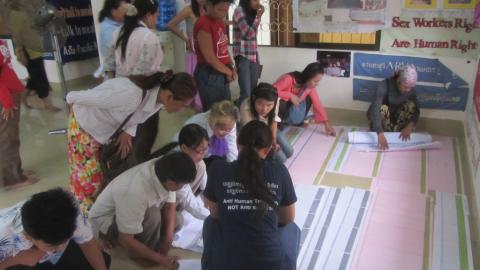
The WNU team prints out all 72 columns of their data. Image by Dirk Slater.
- We organised workshops for WNU on how to develop survey tools and questionnaires and on the use of video and audio for interviewing.
The first workshop, led by the Cambodian Centre for Human Rights (CCHR) and attended by WNU’s outreach team members (primarily cis- and transgender women working as sex workers) focused on creating two survey tools for data collection. After implementing the survey tools for six months, WNU realised they needed to layer the data with more qualitative content. The second workshop focused on training WNU to conduct interviews using audio and video. Each workshop gave WNU skills that they had previously only seen actors and partners from other organisations using.
An interesting detail about WNU's journey through this process surfaced through the self-reflective evaluation methodology. WNU realised that the questionnaires they developed with CCHR did not give them the data that would meet their advocacy aims, so they revised the questionnaires and conducted another round of data collection at their own expense. By the end of the project, WNU staff members had tangibly strengthened their confidence on their ability to manage different aspects of the data collection, management and analysis.
- We conducted a workshop focusing on how to analyse their own data, and understand the basics of statistical analysis.
As the main responsibilities of most of WNU’s staff members did not require them to be computer literate, so their in-house tech capacity was quite low. However, the members of the team working on the project with us were interested in acquiring new technology skills, and our partnership gave them an opportunity to do so. We focused on a pragmatic use of technology, rather than combat erratic connectivity or aim to create uniform levels of computer literacy. WNU greatly benefitted from transferring their data from paper to spreadsheets. However, an immediate challenge for them was the use of non-standardised Khmer fonts on their computers, which led to problems with transferring their data to other programmes. Luckily this issue was identified early on and promptly rectified. WNU also used Excel’s built-in functionality to produce graphs and pie charts that were used to make some preliminary visualisations. In particular, this allowed them to produce leaflets highlighting the increased violence against sex workers through the implementation of the anti trafficking law, which they adopted to illustrate the problem during meetings with government officials.
- We provided them with a self-reflective evaluation research methodology that allowed them to evaluate their progress with advocacy.
This project had a strong self-reflection and learning element built into it. We were interested in documenting and monitoring how the process of using data, and shaping advocacy goals clearly affected how WNU were able to think about their advocacy and the use of data. The team felt that the self-reflection tools and exercises provided were of great value. They recognised the need to expand their advocacy approaches beyond the confrontational approach they formerly relied on and to acquire relationship-building skills to engage in cooperative advocacy approaches.
Data and evidence about sex worker communities are often collected by outsiders and
the ownership of the data is rarely with sex workers themselves. As a result of doing the data collection themselves, WNU felt that they were able to get a clearer picture of who perpetrates violence and were able to connect the violence directly to policy. This inspired a significant shift from reactive advocacy strategies to proactive ones, and had the effect of both enabling WNU to have a stronger connection to their own communities, and building their own confidence in their ability to create an accurate picture of what is happening in their communities.
WNU also developed key skills in analysing and understanding their own data. They now have a clearer understanding of how the anti trafficking law creates more violence but also how the acts of raid and rescue actually drive sex workers deeper into poverty.
- We helped WNU develop a design brief for working with designers to visualise their data
We showed WNY examples of visualisations of data, particularly infographics that had been used in advocacy, and asked them to find and share local examples of infographics. We were able to work on reverse-engineering infographics to show how they were developed: how the data was sourced and visualised, to figure out the actual process of how information can be leveraged in different way to create advocacy messages. WNU worked with an Indian design team called Mediashala to visualise their data as informational and 'storytelling' infographics. They chose three messages: "Rescue Us From the Rescuers" "Your Law Brings Us More Problems, Not Solutions" and "Not Being Rescued from Poverty."
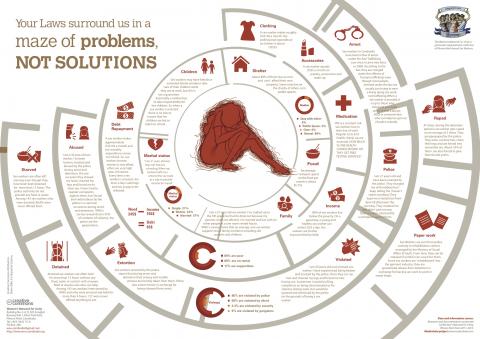
'A maze of problems, not solutions' was one of the infographics developed by WNU and Mediashala; it describes how sex workers' problems multiply under the influence of the anti-trafficking law, creating a disorienting sense of being in a maze.
Challenges and lessons learned
We’ll present our most relevant learnings focusing on three core aspects of the project:
- stakeholders' engagement, trust and capacity building
- project design and choices about technology and processes
- responsible and strategic use of data about marginalised communities
Stakeholders' engagement, trust and capacity building
- When introducing yourself to the community you’ll work with, be clear about your role and goals. You are not a funder nor a technology provider. You are working with the community to help improve its advocacy.
- Support the existing advocacy aims and goals of the community and leave assumptions about what they should be at the door ("your bag of potatoes"). Many poor communities are - and with good reason - highly suspicious of the intentions of international NGOs coming to work with them, and this is because they have been taken advantage of.
- Build mutual trust and respect. Deal with delicate topics and experiences part of the community’s reality respectfully and always focusing on supporting it in accomplishing its mission.
There are going to be sensitive topics which will need to be covered and no level of sensitivity will ever be too much: be prepared, be aware of community customs and histories, be respectful, never be judgemental. During most of our project with WNU, we managed to avoid conversations about titillating details regarding the sex workers’ experiences. But for the sake of data, when brainstorming about how to visualise the economics of sex work, we found ourselves in need to ask for the price of the services they provided. We hoped this wouldn't come across the wrong way and were relieved that our questions were welcomed with laughter (!).
At the same time, there's no need to shy away from tough discussions. For example, we have had differences of opinion with WNU and DMSC about if and how we could represent sex workers visually. We felt that visual portrayals of sex workers have tended to be over-sexualised and prurient; also, sex workers and poor women can be presented as 'victims' . We wanted to steer clear of these representations, or at least show that we were conscious of them. However, WNU felt (as did DMSC) that sex workers needed to look like 'sexy women' because that's what they are and are known for. It was a very important moment for us to be able to have this conversation and respectfully agree to disagree. Eventually, WNU designed their own graphics with no inputs from us, so it was eventually their decision.
- It’s important to have longevity in relationships with not just the organisations working on the project but with the individuals at those organisations as well. This is not just about building trust, but about working with individuals who understand the project and how it has progressed.
- Regular and consistent communication is an essential element of remote management, and face-to-face site visits are extremely productive and critical to moving the project along (especially when cultural and linguistic differences come into play).
- Make sure that the data collected are shared with the members of the community you work with. This is extremely important in raising awareness and furthering conversations about the community’s rights.
- Adaptation and iteration are hallmarks of creative collaborations.
Project design and choices about technology and processes
- The project should begin with a proper assessment relating to the use and application of technologies to the community’s goals. It is also vital that you sketch out the scope, scale, geographic coverage, and comprehensiveness of the data collection initiative that you are planning.
- Groups that adopt technology platforms and devices without stringent reviews and assessments of their overall approach to working with information, often find themselves struggling to manage their technologies instead of leveraging their information.
- Examine the appropriate role of emerging technologies with communities lacking a proper strategic foundation to them effectively.
- Don’t bring in new technology if not necessary, and incorporate processes, systems and platforms that will enable, support and help process their information needs in a way that has a strong impact on the community’s core objectives.
- But also: support grassroots communities to leverage social and web 2.0 media technologies to convey their messages. Digitally-enabled activism has become a strong factor in global politics but many smaller groups are being left out primarily due to infrastructural limitations (from poor bandwidth to lack of multi-language platforms). Basic digital advocacy trainings can be useful for grassroots communities in leveraging their information more effectively.
- Design implementation projects that integrate self-reflection tools. Active, participatory reflection on process can be very useful if it is integrated with the project activities and simultaneously develops strong monitoring and evaluation methodologies and feedback loops.
- Participatory action and research can greatly help the community think more strategically, and with a better analysis of their own context.
- Produce draft visualisations of the data that the organisations collect early as this can lead to a turning point in the way that the organisations understand how data can be used in advocacy.
- Focus on replicability. Identify aspects of the intervention that may have relevance for the community you work with in the future, as well as for other similar marginalised communities.
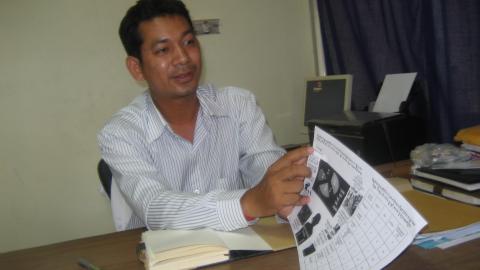
A local government official in Phnom Penh was excited to show our evaluation researchers the data collected by WNU about arrests of sex workers. Image by Veronica Magar
Responsible and strategic use of data
- Data and evidence about marginalised communities are often collected by outsiders and the ownership of the data is rarely with the communities themselves. Therefore, support the community you work with in understanding how to aggregate different kinds of data as evidence about their issues, and how this may be visually represented, and equip it to take on further advocacy projects and develop its own materials in the future.
- Data collection efforts are extremely beneficial to the community, not just in terms of their own projects and work, but in building confidence and skills. Always put the community at the centre of the data collection process as well as the discussions and decision-making around what the data would be used for.
- Focus on the risk of unsafe exposure, the tension between damaging visibility and participation. It’s essential that activists working with marginalised communities are fully aware of this aspect and how to responsibly deal with it, making sure not to harm the vulnerable individuals involved.
- Identify what the best means are for working with data and evidence from an action and advocacy perspective – as opposed to a more academic approach, fairly common in NGOs, which translates the data collected in detailed theoretical research, which can be helpful for documentation purposes but does not help towards the most tangible action-focused needs of grassroots communities.
- Community-based groups could be supported to use different kinds of open data that do exist in order to develop their advocacy materials. More grassroots groups could learn to make use of public data and contextualise it to their advocacy.
- There needs to be a greater connection between open-data movements and grassroots advocates to ensure accessibility and usability of data released by public institutions. The kinds of knowledge created by grassroots groups also needs to find greater connection with the kinds of knowledge developed by more well-resourced and powerful groups such as research institutes. Essentially, an open data approach to community owned and community based data could be extremely beneficial to advocates.
Dirk Slater has spent the last two decades working with activists and advocates in over 30 countries improve the effectiveness of their campaigns.
Beatrice Martini is a capacity builder, facilitator and curator, working with technology for social justice and human rights.
Maya Ganesh is Tactical Tech's Research Director.



